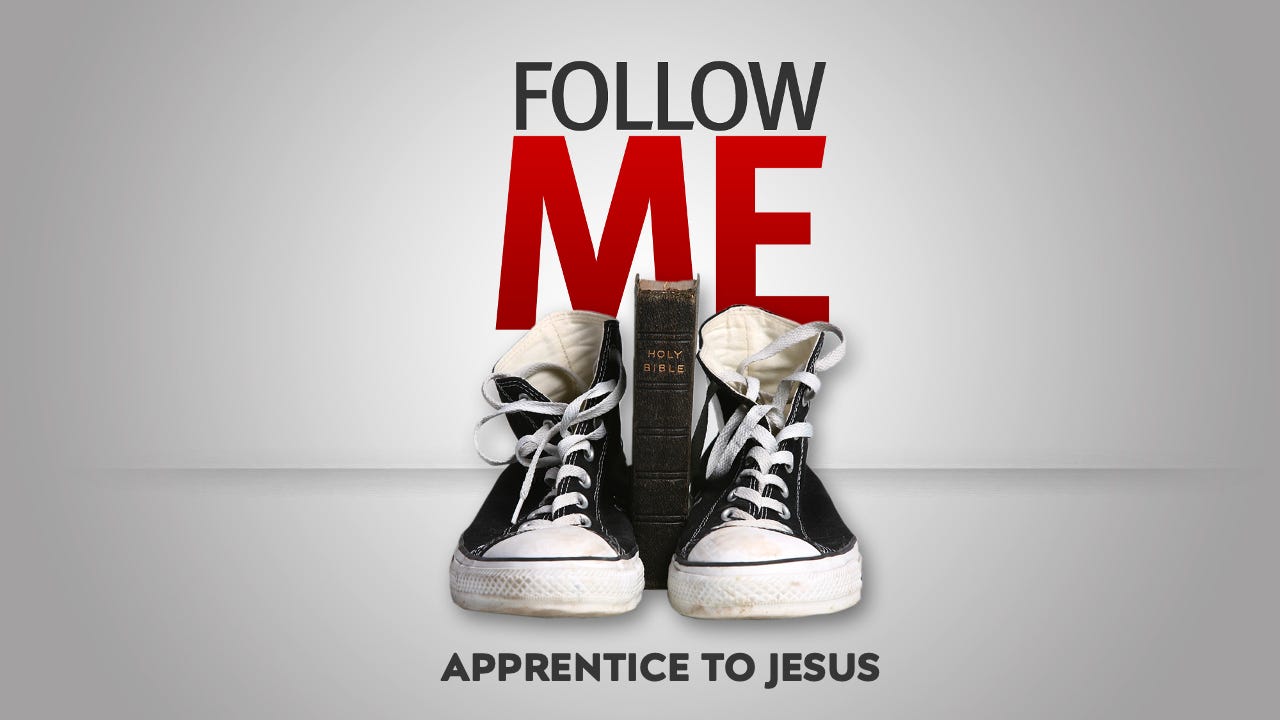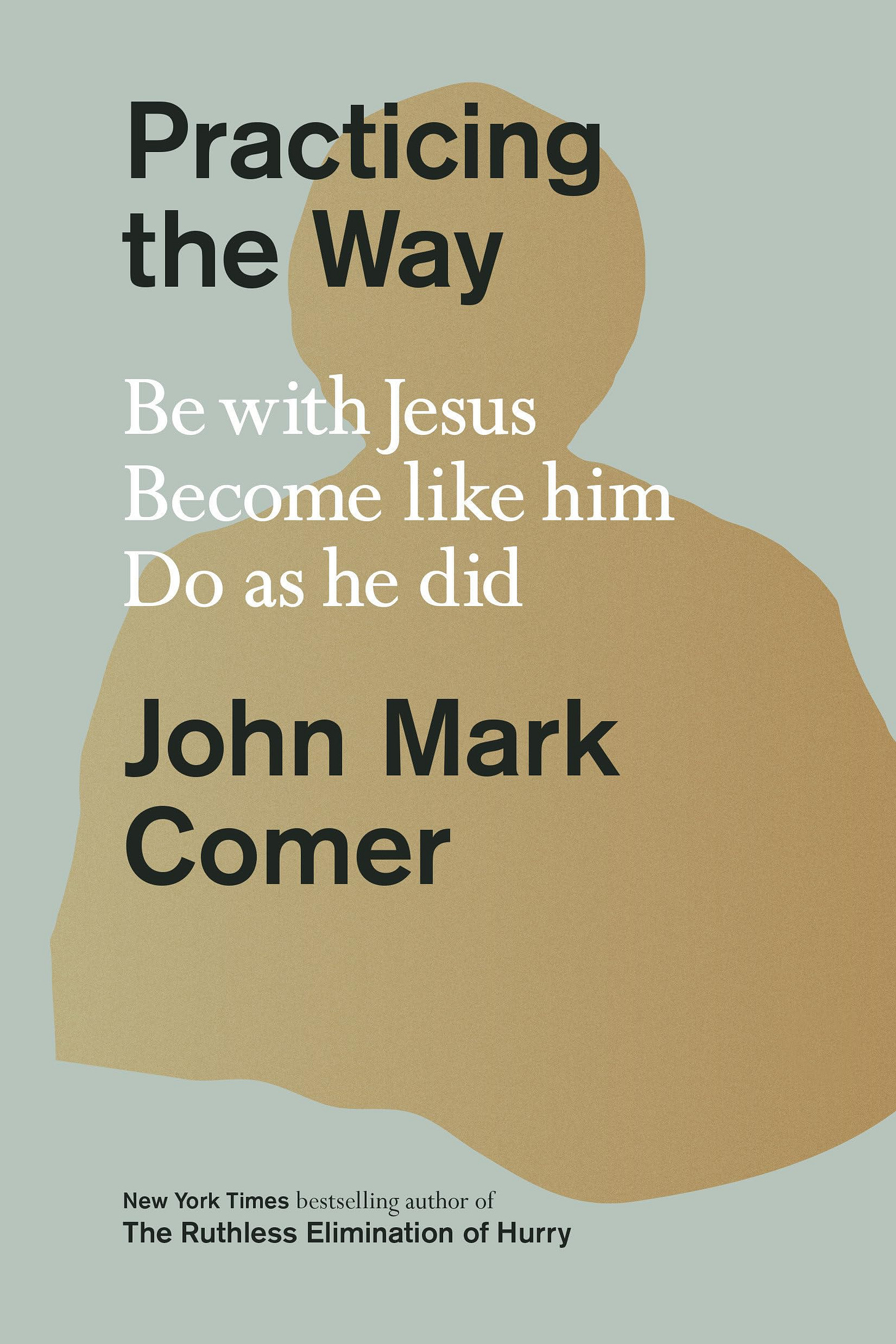In This Edition:
Mary, Did You Know? This Is Her Story
2025: Follow Me: Practicing The Way of Discipleship
Subscribe!
Mary, Did You Know?
Photo Credit: “Enthroned Virgin and Child,” French (1260-1280)
46 “My soul magnifies the Lord,
47 and my spirit rejoices in God my Savior,
48 for he has looked on the humble estate of his servant.
For behold, from now on all generations will call me blessed;
49 for he who is mighty has done great things for me,
and holy is his name.
50 And his mercy is for those who fear him
from generation to generation.
51 He has shown strength with his arm;
he has scattered the proud in the thoughts of their hearts;
52 he has brought down the mighty from their thrones
and exalted those of humble estate;
53 he has filled the hungry with good things,
and the rich he has sent away empty.
54 He has helped his servant Israel,
in remembrance of his mercy,
55 as he spoke to our fathers,
to Abraham and to his offspring forever.”
(Luke 1:46-55 ESV)
When most people hear that I will be sharing my story, they all immediately have one question for me–and I bet it’s your question. So let me get this out of the way: your thinking, “Mary, did you know?”
The answer to that is…complicated. Yes and no. Many years ago, there was an art exhibit which featured an empty chair facing a loaded gun, set to go off at an undisclosed time somewhere in the future. The line to take your seat in the empty chair stretched throughout the museum. Why do you think that was? Because everyone knew the gun was set to go off…but nobody thought it would happen while they were sitting in the seat.
I guess you could say 1st century Judea was a bit like that. We knew the Messiah was coming. We talked about it at Temple, and in the synagogues, and even over the dinner table. We checked our genealogies and wondered if we would know the parents. But still…when it happens to you…
Yes, I was told some things. And I observed some things. My friend, Luke, let you in on some of this. At one place Luke says I “preserved all these words” and then pondered, or questioned, or treasured all these little sayings and happenings in my heart. That’s true. That means I would discuss, or compare notes, or even debate in my mind what was happening. I was going through a severe mental process for years, trying to decipher and figure out just what all of this means.
But when my oldest was 12, you might remember, we had a little mixup, and left him behind at the Temple. I’m not a bad mother. We traveled in packs as large families, and it wasn’t always known which kid was with which group in the caravan–I think the movie “Home Alone” explains well how that can happen. But when we did find Jesus, and questioned him about it, he said “didn’t you know?” “Didn’t you know…where I was or what I was doing, or where I had to be?” And, as Luke says, “we didn’t grasp it all.” But I kept wrestling with it.
When Gabriel first appeared to me, and told me the hard-to-believe news, my shock and bewilderment kicked in a bit. It led me to three stages in my response.
After he made his initial greeting, the first thing that happened is that I was “greatly troubled” (Luke 1:29). It’s the first stage of shock right? About like you would expect–the same thing Zechariah felt at first (Luke 1:12). But I did try to keep my composure. I “tried to discern what sort of greeting this might be” (Luke 1:29). I was determined to hold on and listen in, to wait and reflect before I gave a response.
The second thing I did was voice a question. Isn’t disbelief or bartering another stage in shock? You see, Gabriel said that I had found favor with God. That I was going to conceive–in my womb–and bear a son. That King David would be his father somehow, and he would inherit the throne. That he would reign over the house of Jacob forever, and that his kingdom would have no end. How would you respond to that? I said the only word that came to my mind: “How????” My man’s name is Joseph. We are betrothed which was practically married back then, only I didn’t live with him yet, I lived at home with my parents. And we hadn’t…well…done anything that would explain how I was going to have a son. Do you understand what I’m saying?
He told me that the Holy Spirit would overshadow me; that this child would be the son of God…and that my cousin Elizabeth was going through a strange birth herself. Oh…and that nothing is impossible with God.
So the third thing I did was the last stage of shock…acceptance. I said “I am the Lord’s servant; let it happen just as you’ve said” (Luke 1:38). “Let it be according to your word,” I said. I know I could have rejected and revolted. Luke–the same wonderful man who told my story in the gospel, wrote a second volume called “Acts.” And in that book, he reminded everyone what Judas the Galilean did, revolting “at the time of the census” (Acts 5:37). I remember that. I wasn’t going to follow suit.
900 years ago, a Christian in France named Bernard wrote a sermon about that moment. I’ve always liked it. Here is how one Jesus follower summarizes that sermon:
He said that after the fall of our first parents, the whole world was shrouded in darkness and fell under the dominion of death. But here–in this moment of time–God seeks to enter the world anew. He knocks at my door. He needs human freedom. The only way he can redeem man, who was created free, is by means of a free ‘yes’ to his will. You see–by making you and me free, God in a way made himself dependent on man! His power is tied to the unenforceable ‘yes’ of a human being. So Bernhard paints the scene of this moment, when Gabriel waits for my answer, as heaven and earth holding its breath as the question is posed to me. Will I say yes? I hesitate and reflect for a moment. Will my humility hold me back? Bernhard shouts at me in his sermon: “just this once, Mary, do not be humble but daring! Give us your ‘yes’! For this is the crucial moment when, from my lips, and from my heart, the answer comes: ‘Let it be to me according to your word.’ It is the moment of free, humble, yet magnanimous obedience in which the loftiest choice of human freedom is made.
And then…he was gone. The angel departed from me. I had to live there in the silence.
Can you imagine what that was like? This was not going to be easy. Things weren’t easy for women in general; try a poor, unwed pregnant teenager with a story about a visit by angels. How was this going to play out? What would Joseph think when I told him? What would my parents think? The whole village was talking about my cousin Liz’s pregnancy: how God had opened her womb. I couldn’t tell a soul about my…condition. A few months later, my nephew John would be born surrounded by family, friends, and well-wishers. I watched it all with a knot in my stomach. That wasn’t the only thing in my stomach. What about me? Would anyone even know? Would anyone even be there?
I wonder if any of you experienced your parents disapproval of your wedding. Or maybe if any of you had an unplanned pregnancy. Or an unusual labor experience. Or maybe if any of you had to care for your newborn without the help of friends or family. All of that went rolling through my mind. And all the options.
Philip Yancey tells my story this way. My pregnancy, in poor circumstances, with the father unknown–in today’s society, that would clearly make me a prime candidate to simply end the pregnancy, don’t you think? And when I told them the father was the Holy Spirit–I was told so by an angel who appeared to me in my room–well, let’s just say I’d be admitted to a room with padded walls pretty quick. You know (as someone once put it) it would be funny if not so sad: that your modern world, in need of a Savior perhaps more than ever, might be “too humane to allow one to be born.”
As it turns out, Joseph did know. An angel appeared to him as well. Let me tell you about my man. He went through all the mental gyrations too. Can you blame him? Should he break off the engagement? Divorce me? Put me up to public shame to clear his own name? I love that my friend Matthew says he didn’t do any of that because his is a “just” man. At a time where taking legal outs given by the law to punish people was consider “justice,” Matthew says what made Joseph just was just…the opposite! He didn’t try to hurt me, but, instead, wished me well in my hour of need. You know, the very first Psalm says the just man is “like a tree planted by the rivers of water.” That’s Joseph. Planted like a tree. He was no dead-beat dad. A father who stays…in the most difficult of circumstances…is just. The angel told Joseph not to be afraid to take me as his wife, which, by implication, also meant adopting my son as his very own. What a good man.
You may already know that we got out of town. That was good for a number of reasons–after all, I was beginning to show; but this was all part of God’s long-term plan. You see Augustus sent out a decree that all the world should be taxed. You may not know this but men had to show up wherever they owned property for tax registration. He never told me exactly, but I assume that’s why we headed for Bethlehem. I didn’t even think about it at the time…but the prophet Micah said it had to be Bethlehem. Because out of there would come the one who was to rule Israel (Micah 5:1-5).
And we first century Jews thought of ourselves as still in exile in some ways. We were traveling nomads going back and forth from captivity to captivity, while a foreign army ruled over God’s land. So us going away only to return home sort of symbolized exile and restoration. I think that’s why later we end up in Egypt for a while. That’s where God’s people went, and out of Egypt God called forth his Son. So when you read that we traveled alot in those early years…just think of how we were retelling the story of God’s people going in and out, until the day when we would be free to go in and out and find pasture under the Chief Shepherd.
When we arrived in Bethlehem, I turned to Joseph and said, “did you remember to check Airbnb?” That look on his face told me he had not. And every place we looked had a “no vacancy” sign. I didn’t know it then, but this was all so fitting. “He came unto his own,” says my friend John, “and his own did not receive him” (John 1:11). He who would later be crucified outside the city, came to be born outside the city. And his whole life would be characterized as “the Son of Man has no place to lay his head” (Matt 8:20). The greatest power the world had ever known would appear so powerless, a stark contrast to Caesar Augustus 1500 miles away.
Where we ended up is cause for debate. The church of the Nativity sits on a cave that has traditionally been claimed as his birth site. Over the years, people have developed some beautiful theology from that idea. That Jesus was born in an inhospitable stable might signify our unworthy planet and the lowliness of his birth. Two early Christian writers in the first few centuries confirm the tradition that Jesus was born in a cave. On the other hand, you may know that in the first century, most people didn’t have a separate barn, but rather let their animals sleep in the courtyard of their house. So some say that we were more likely in a house–perhaps in the courtyard of one. I know the truth…I’ll ponder it in my heart…and leave you guessing.
When Jesus was born, I wrapped him in swaddling clothes and laid him in a manger. Growing up, my family read from our Bibles and other ancient works like the book of Wisdom. That book says
“In swaddling clothes and with constant care I was nurtured.
For no king has any different origin or birth.” (Wisdom 7:4-5 NASB)
Or, perhaps here is a book you’ll be more familiar with–the prophet Isaiah:
“The ox knows its owner,
And the donkey its master’s manger;
But Israel does not know me,
My people do not understand me” (Isaiah 1:3)
I can’t say I remembered all of that on this fateful night…but I knew there was more here than meets the eye.
I wrapped him in bands of cloth, and laid him in a manger–where no one would lay their child (Luke 2:7). I had a funny feeling–one that bore itself out over 30 years later, when they wrapped him in a linen cloth, and laid him in a tomb–where no one had laid their child (Luke 23:53). The manger was…kind of an altar. And just as I treasured up all the words of my boy Jesus–even in the temple at 12 (Luke 2:51), the women at the tomb “remembered all his words” (Luke 24:8). When birth and burial mirror each other, notes Luke Timothy Johnson, we know something pre-determined is afoot.
Even now…I still reflect on that night. On that whole story. You might find it hard to think that a virgin could conceive…but you believe God came to earth, and then was raised him from the dead, right? A preacher long ago named Luther said the greatest miracle in Luke 1 is not the idea that a virgin can conceive a child…but that I would believe the angel’s words. But don’t you see? Don’t you see that God came to dwell inside a human? All the fullness of God would dwell in Jesus. And all the fullness of the father, son, and spirit, would come to make their home in each christian and in his church. What a fitting way to let you all know that it is possible. For nothing is impossible with God.
Let me return to where I began. “Mary, did you know?” you ask? The only way you know what I know is by listening to what I say and watching what I do. So let me return the question: O Christian, do you know? I’m listening for what you say and watching what you do–that will tell me if you know the story.
This is a sermon preached on December 15, 2024 at the West Side Church of Christ (Searcy, AR) entitled “What Mary Knew.” This lesson is available to watch or listen, and appears on the Life on the West Side podcast (Season 4, Episode 35). Available on all podcast platforms.
2025 West Side Sermon Focus: Follow Me—Practicing The Way of Discipleship
In 2025, the West Side Sunday morning sermon focus will be on discipleship—following Jesus in everyday life. The lessons will be arranged into several mini-series, but each of these will contribute to the larger whole. Mini-series titles include the following:
-Apprentices to Jesus
-Holy Connection: Being with Jesus
-Formational Growth: Becoming Like Jesus
-Contributing Mission: Doing What He Did
-Taking up your Cross
-Struggles we Face
-Habits for Growth
A major conversation partner—and the underlying study guide—is John Mark Comer’s Practicing The Way. If you are not familiar with this work, here is Brad East on why reading Comer is important, and here are helpful resources from Comer’s website and a Right Now Media course. I hope you will join us this year as we seek to emphasize the calling of Jesus to follow Him.
Subscribe to Life on the West Side
My name is Nathan Guy. I serve as associate professor of philosophy, theology, and ethics and as the director of the David E. Smith Healthcare Ethics and Human Dignity Initiative at Harding University (Searcy, Arkansas). I am also privileged to serve as preaching minister for the West Side Church of Christ in Searcy. I joyfully adjunct courses for the School for Professional Studies at St. Louis University and enthusiastically serve as chairman of the board for the Center for Christian Studies. I am happily married to Katie and am the proud father of Grace (who is 3) and Henry (who is wee). You can find more resources on my website over at nathanguy.com. You can follow me (@nathanpguy) on social media: Facebook, Instagram, Twitter (X), Threads, Bluesky, and YouTube.







